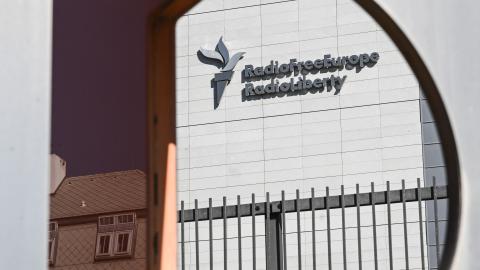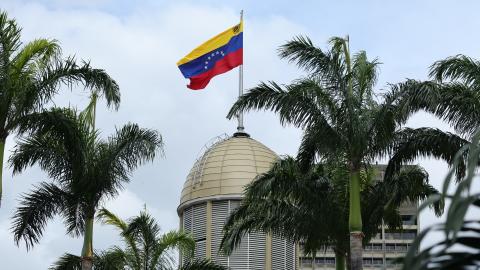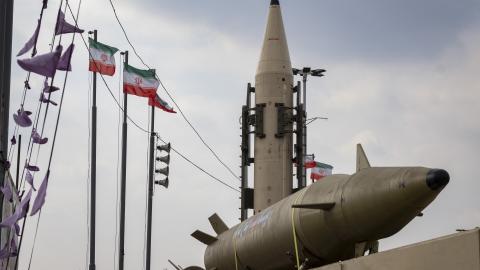Paul Marshall highlights results of new Center for Religious Freedom survey.
In his recent speech at the Islamic Center of Washington, D.C., President George W. Bush once again stressed the fundamental importance of religious freedom. It is “the very first protection offered in America’s Bill of Rights. It is a precious freedom. It is a basic compact under which people of faith agree not to impose their spiritual vision on others, and in return to practice their own beliefs as they see fit.” He does this repeatedly, and emphasizes its significance through other events, such as his private meeting with Cardinal Joseph Zen, the Roman Catholic archbishop of Hong Kong, something the State department reportedly opposed.
Unfortunately, despite the presidential emphasis, these fine words seldom shape the foreign-policy bureaucracy. Promoting religious freedom is too often reduced to the noble task of helping those in prison, or occasionally treated as a sop to the president’s religious constituents. It is seldom treated as an integral part of foreign affairs: Instead we find what Tom Farr calls in his forthcoming World of Faith and Freedom “a strong diplomatic distaste for understanding religion as a policy matter.”
Yet there is a reason America’s Founding Fathers placed religious freedom as the very first freedom in the First Amendment: They viewed it as central, as a key to other rights. The Hudson Institute’s just-completed international survey of religious freedom shows they were right.
The president correctly tied religious freedom to the threat of radical Islam, to helping “the forces of moderation win the great struggle against extremism that is now playing out across the broader Middle East. We’ve seen the expansion of the concept of religious freedom and individual rights in every region of the world — except one.” Our survey shows that the Muslim world, especially the greater Middle East, is the most religiously repressive region, and that that repression is expanding. One of the greatest barriers in this great struggle is that many Muslims who advocate interpretations of Islam that favor human freedom are silenced by threats from extremists, or charged by governments, with heresy, apostasy, or insulting Islam.
Nor is religious freedom merely a Western preoccupation: It is not confined to any area or continent. Despite the problems in the Islamic world, there are free Muslim countries such as Mali or Senegal. They, together with Japan, Brazil, Chile, Ecuador, Guatemala, Botswana, Namibia, and South Africa score better in this survey than do Belgium, France, Germany, or Greece.
The most egregious persecuting states tend to be either Communist, such as North Korea and China, nationalist, such as Burma and Eritrea, or radical Islamist, such as Iran and Saudi Arabia. They also tend to be those that act against U.S. interests. Conversely, those with good records are likely to be good U.S. allies.
While Western Europe is still one of the freest regions of the world, the situation is worsening and most countries score worse on religious freedom than they do for civil liberties in general. The reasons for this — continuing religious discrimination, increasingly aggressive secular ideologies, and an increase in religiously demarcated violence — illustrate and exacerbate the continent’s increasing tensions.
Religious freedom also correlates highly with other human rights, such as Freedom House’s civil-liberty index (.862) and political-liberties index (.822), and with Reporters without Borders press-freedom index (.804). Countries with good religious records also have comparatively little social conflict, remain democratic, and are unlikely to become failed states.
There is strong relation with economic wellbeing; both of men and women, and religiously based social restrictions on women are one of the major determinants of their economic status. One major reason for this is the strong linkage with economic freedom: Our religious-freedom scores have a correlation of .743 with the Heritage Foundation/Wall Street Journal economic-freedom index. This is more than a finding that rich countries tend to have other good things as well. Religious freedom not only correlates well with positive economic outcomes but also actually contributes toward them since it promotes the accumulation of social and spiritual capital. Good religious policies, good economic policies, and good economic outcomes go together.
Our modern world is becoming increasingly religious, religion shapes countries, and political and economic freedoms require religious freedom. Realistic foreign policy requires that action on the first freedom be moved from the fringes of diplomacy and given a centrality that reflects its growing importance.














